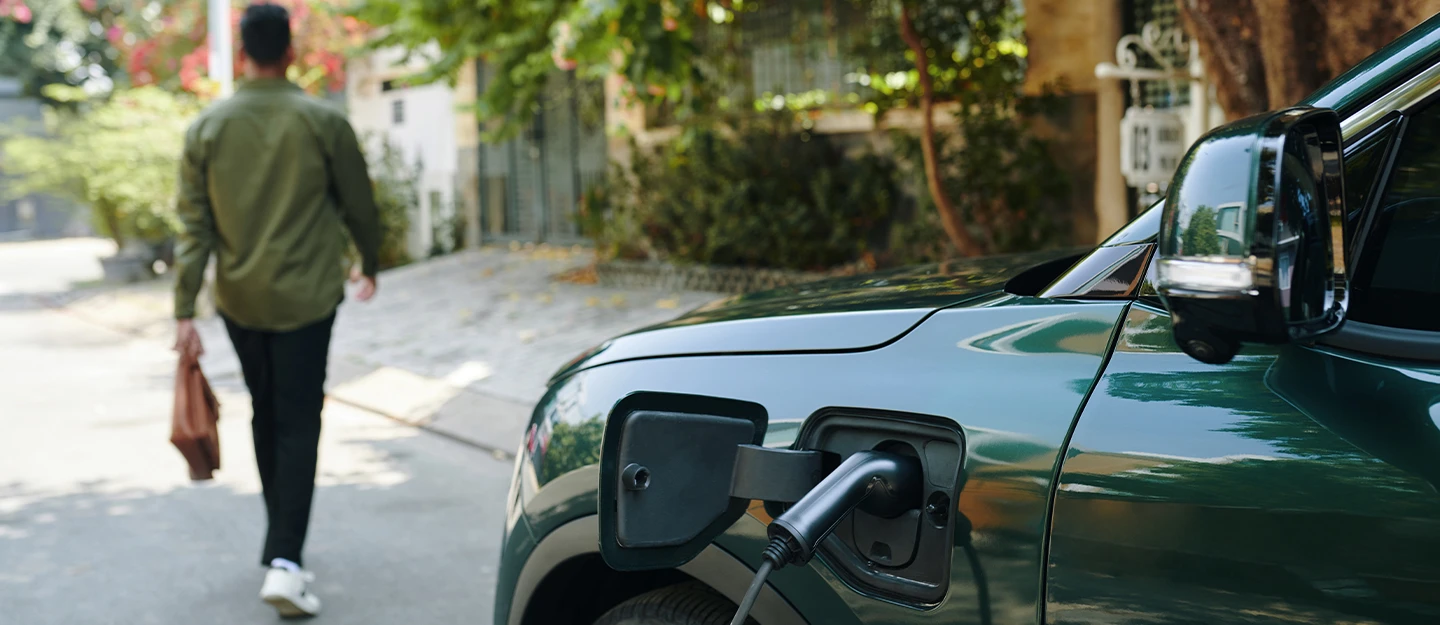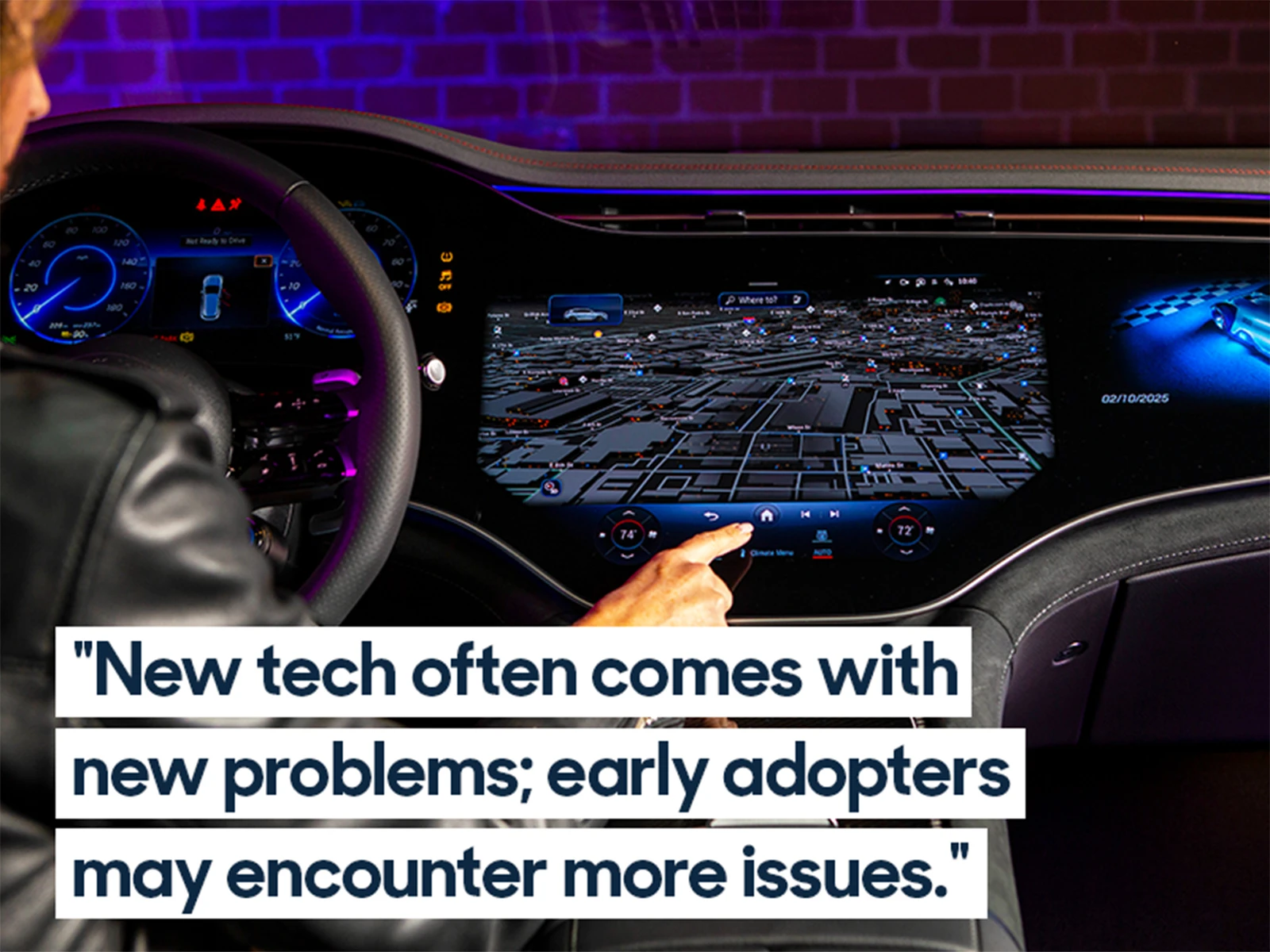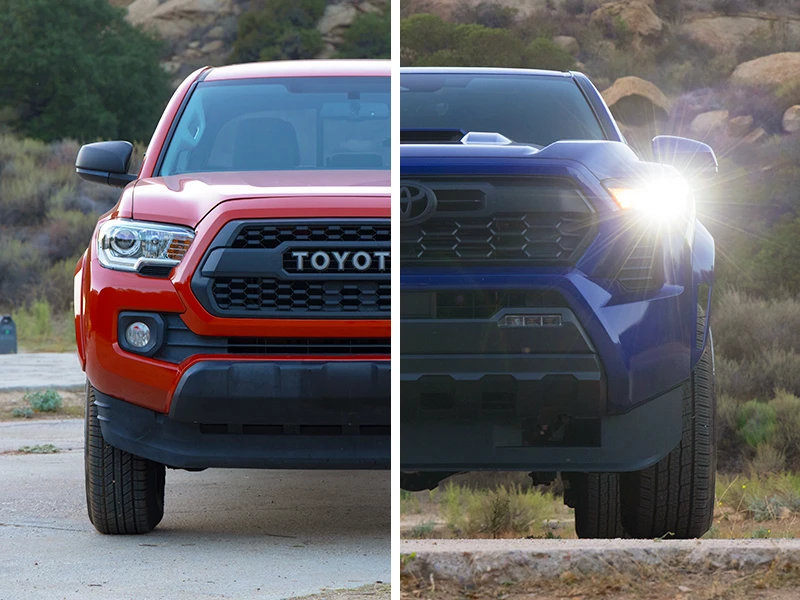
With thousands of vehicles in our inventory, we’re here to help make car research easier for you. We’ve partnered with car-review experts from Edmunds to weigh in on what matters most when you’re looking to buy a truck or car.
***
If you're reading this article, there's a good chance that you're prone to tech remorse. It's that anxious feeling you get when you want to buy an expensive piece of tech, but you don't want to be caught off-guard if something better comes along in a few months. Think of the person who buys an iPhone in August when the new one comes out in September. We've all been there at some point.
The same thing tends to happen when shopping for an electric vehicle (EV). Sure, the car with the 250-mile range seems fine now, but what if they come out with something that goes 350 miles?
With this in mind, we've examined a few things to consider for those on the fence about buying an EV now and are concerned about future upgrades.

Define "Better"
Here's a reality check many of us need: Technology is constantly improving, and something better will always be around the corner. If you play this waiting game, you might never make a decision on a purchase. You need to make peace with this notion and reach an understanding of what's good enough for your needs today.
Before making this purchase, it's important to decide what "better" means to you. If it's better range, how much range do you need to feel comfortable with the purchase? If it's more horsepower, how fast of a 0-60 mph time do you need? Is it a more efficient electric motor? A faster charge time?
Concern: Better batteries
Solid-state batteries have been touted as the "next big thing" for electric cars, as they have the potential to offer serious enhancements to range, reduced cost, greater efficiency, and weight savings. However, the current supply chains are set up for the more readily available lithium-ion batteries, and different factories are needed for solid-state battery production. It takes time to implement those changes. It could be several years before we see them used in cars at scale.
Solid-state batteries: Toyota's first application of solid-state batteries is estimated to appear in 2026, with more widespread use sometime in 2027 and beyond. Speaking at the 2025 Kia EV Day conference, Hyundai Motor Group's head of global business planning, Spencer Cho, said, "There is a lot of uncertainty about the progress of solid-state batteries."
Cho added that he didn't think that the company could "commercialize these batteries before 2030."
Sodium-ion batteries: A Stanford study on sodium-ion batteries concluded that while they have the potential to reduce supply costs, "The amount of energy they hold per pound tends to be lower than lithium-ion batteries." The report adds that despite the theoretical lower cost of materials, "The cost per unit of energy stored remains higher for sodium-ion batteries. This likely would limit widespread commercial adoption."
Are You Willing to Pay for "Better Tech"?
Perhaps the biggest problem with wanting the newest technology is that it isn't cheap. According to Edmunds sales data, the average transaction price for a new EV in January 2025 was $62,002. Are you willing to pay that much for the latest tech?

New Tech Comes With New Problems
It's not uncommon for a new EV to be released to the public and then have several issues. When the Chevrolet Bolt was relatively new, a defect was discovered in which the battery could potentially catch fire, and several model years were recalled for this issue. Toyota's bZ4X was recalled in its first year of production due to the potential of its wheels to fall off. Tesla's all-new Cybertruck had seven recalls in 2024, ranging from an electrical inverter issue to the front wiper potentially falling off, plus one in 2025, for trim panels falling off.
We don't mention these items to scare you off EVs, as all new cars have recalls. And many of these issues are addressed either via recall or by the manufacturers improving the vehicles' build quality as problems are discovered. But when you choose to be an early adopter of new tech, issues like these are more likely to crop up than if you had waited a few years for the problems to be ironed out.
Do You Really Need a Lot of Driving Range?
When EV-curious people talk about "tech getting better" in the future, they're often talking about how far the car can go without charging. This so-called range anxiety tends to happen because there are far fewer electric charging stations than gas stations, and it takes significantly longer to charge an EV than to refuel a gas vehicle. The solution for these people is that they think they need to buy an EV with more range to mitigate this worry.
But the reality is, most people don't drive that much. According to data from mobility analytics platform Replica, the average commuting distance in the U.S. is about 42 miles a day. Most EVs should be able to comfortably handle this distance and more. Read this article for a deeper discussion on how much electric car range you actually need.
Additionally, according to the U.S. Department of Energy, roughly 80% of EV charging occurs at home. Home charging is like leaving the house with a full "tank of gas" every day. You're probably used to charging your smartphone every night, so if you take the same approach to your EV, the overall range is less likely to be important—unless you're on a road trip.
Car Technology Is Always a Game of Trade-offs
There's a concept in business called the "Triple Constraint." It states that a company can aim to produce something that's "cheap, fast, and good," but it can only ever achieve two of the three.
Cars are a complex balancing act of engineering, mitigating cost, and generating a profit for the automaker. In other words, automakers can build an electric car with upward of 500 miles of range and a nice interior, like the Lucid Air, but it will cost you over $100,000 (when new). Similarly, you can have an inexpensive EV, like the Nissan Leaf, but it will be small and offer a range of about 200 miles or less.
With the way electric car technology is today, we must often make a similar trade-off. Are you comfortable having a relatively affordable EV with less range and potentially renting a gas car for long road trips? Or do you want to go all in on a long-range EV and be willing to pay extra for it?
Ronald's take
Here are two reasons why you should get off the fence and land on the "buy now" side of it:
Waiting may cost you more than buying now, as Edmunds analysts predict that used car prices are likely to increase this year due to several factors.
Once you determine what you really need in an EV, and are ready to start shopping, you'll find that most models made within the past few years are more than capable of handling most people's commutes, have solid fast-charging times, and have more durable batteries than ever.




